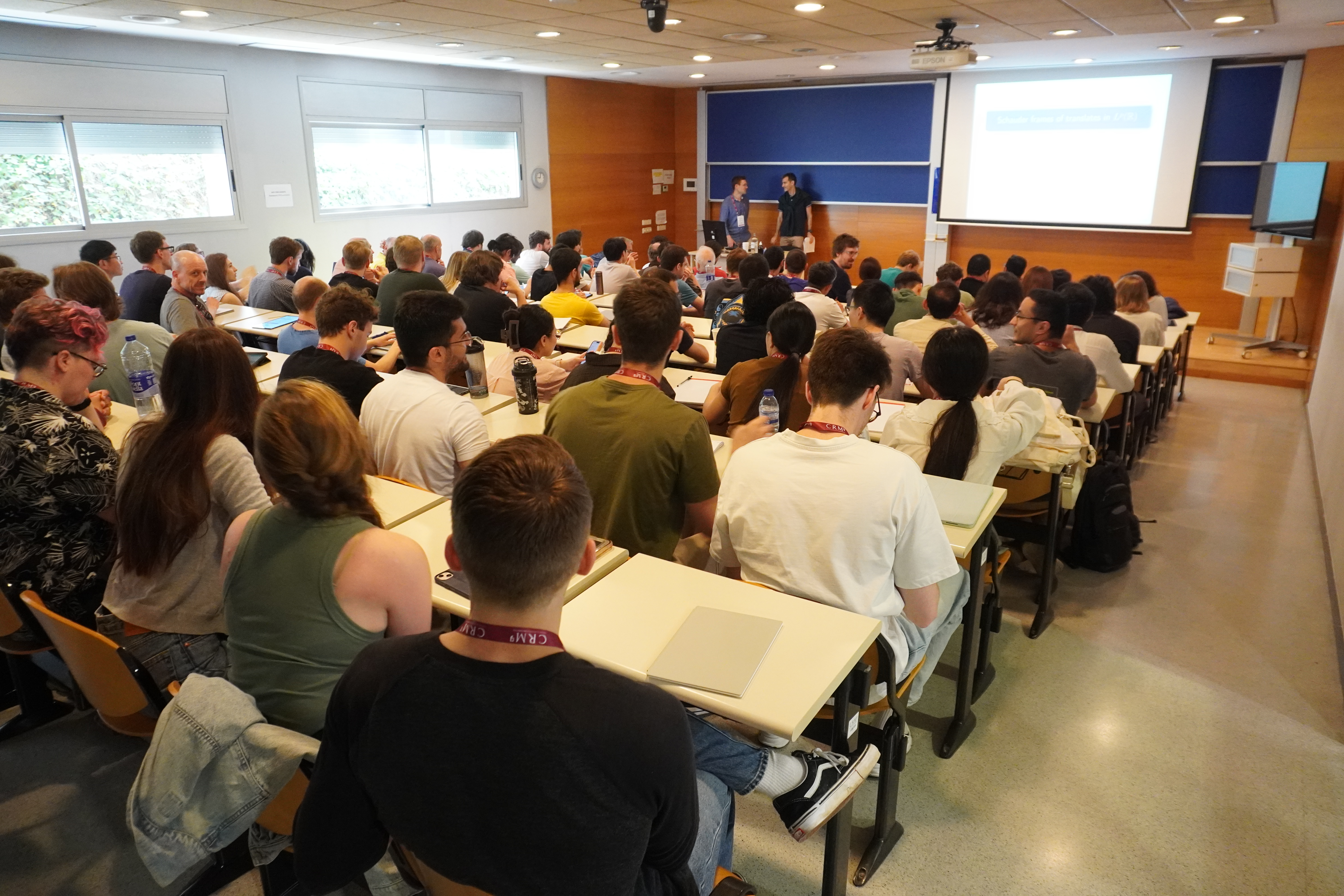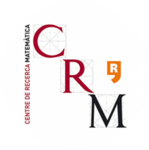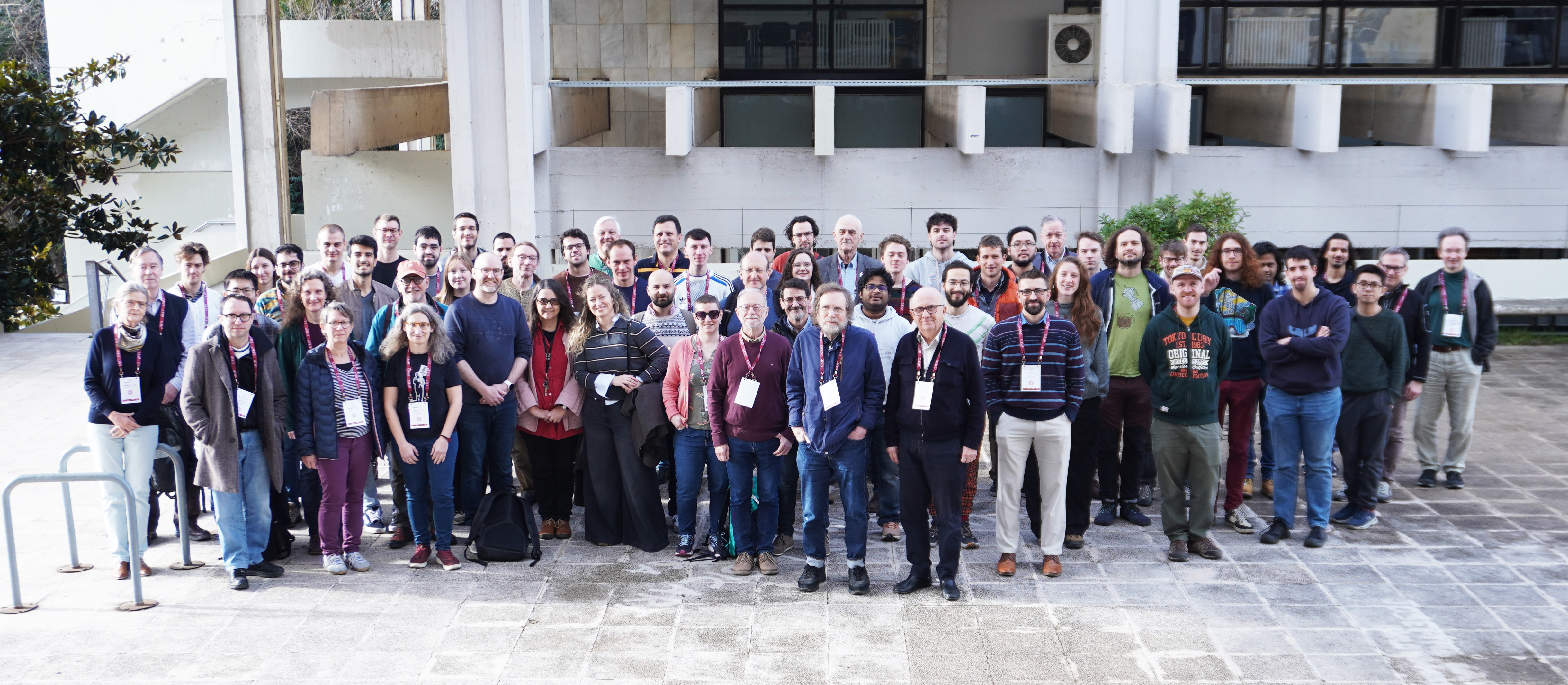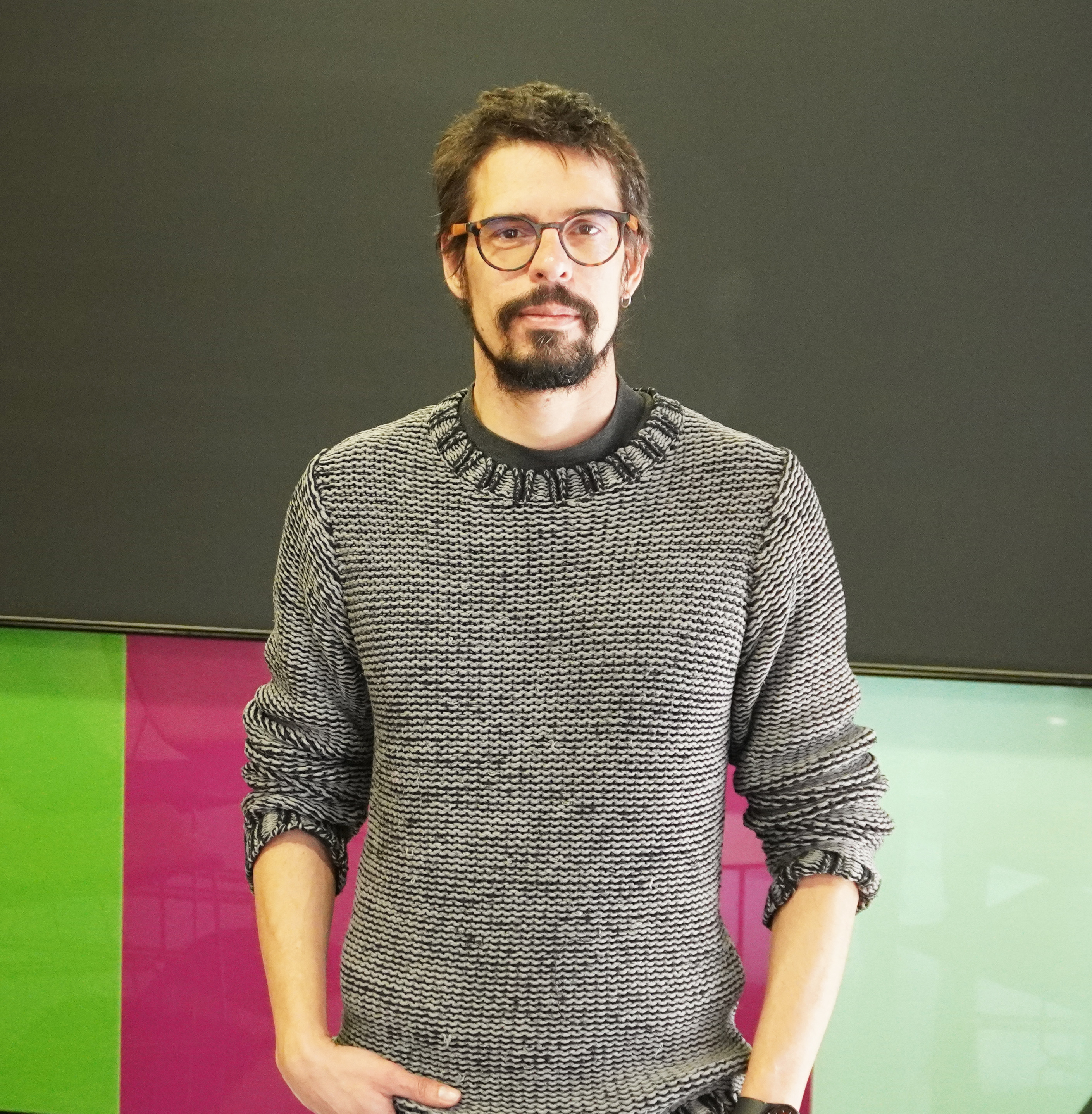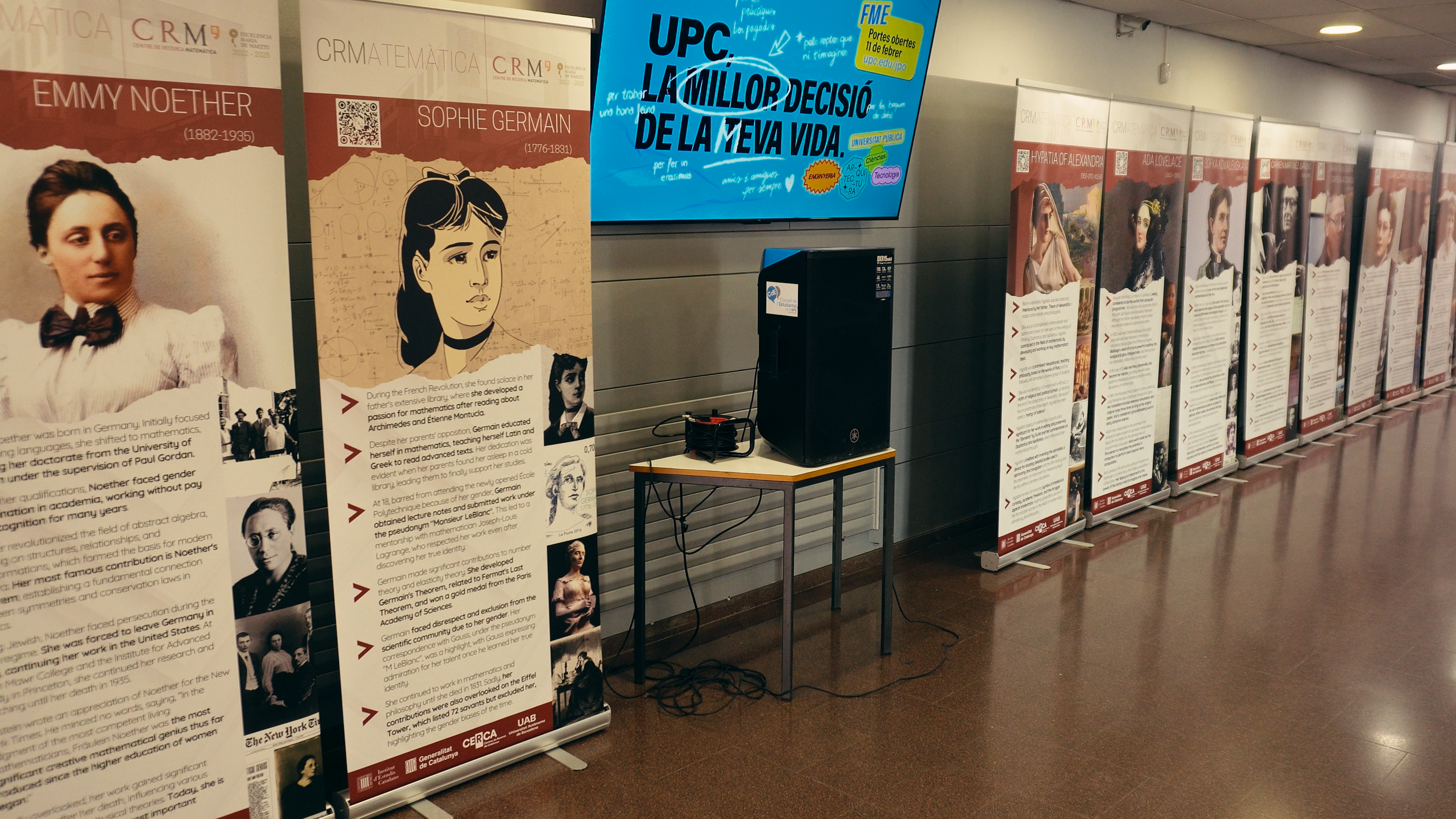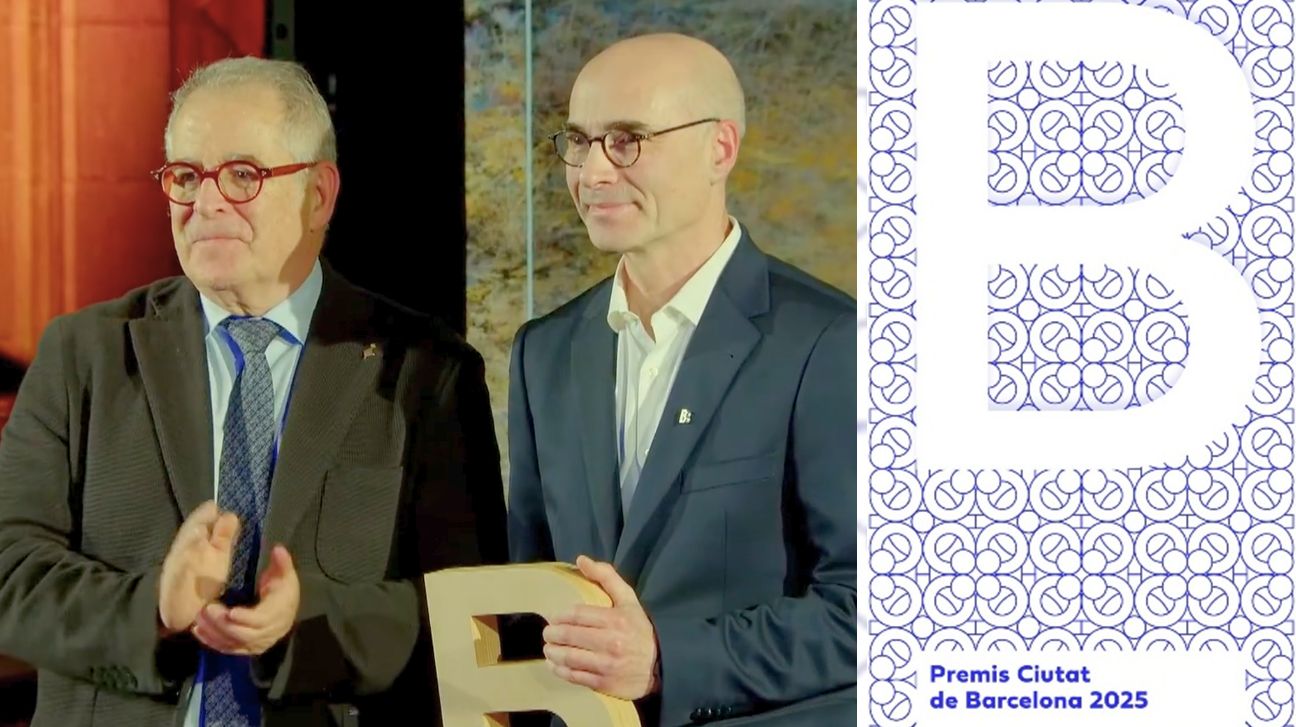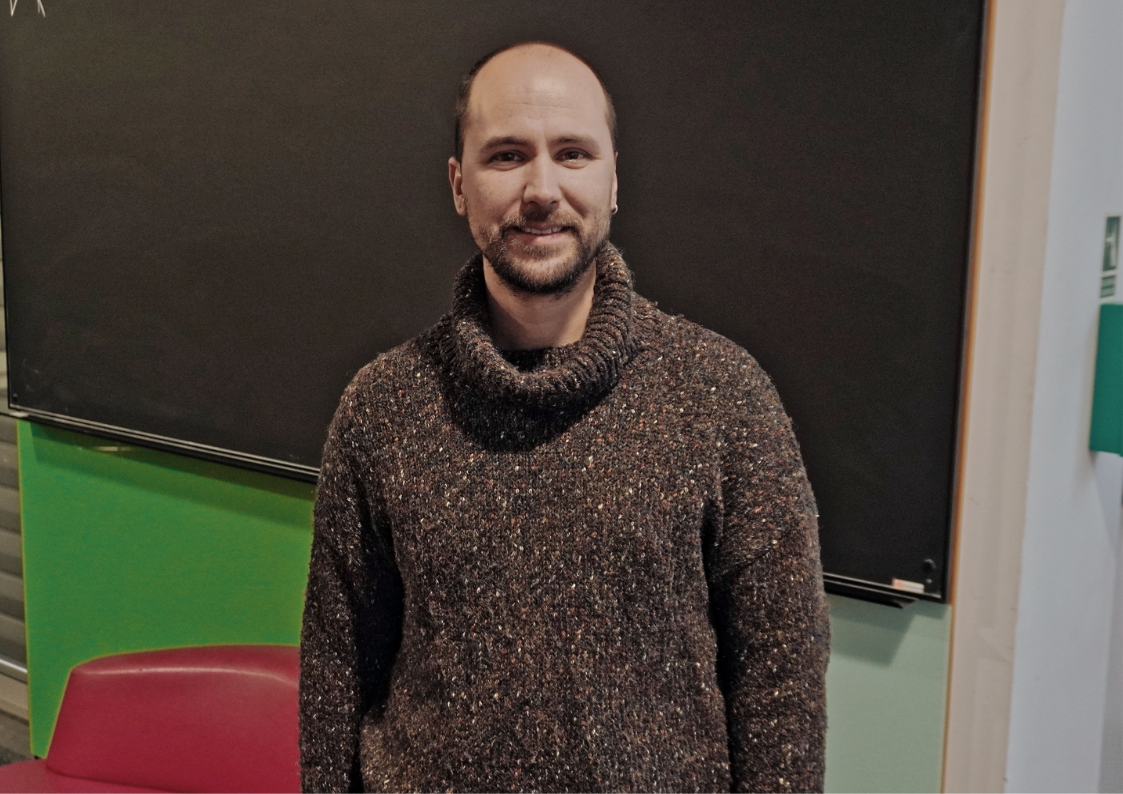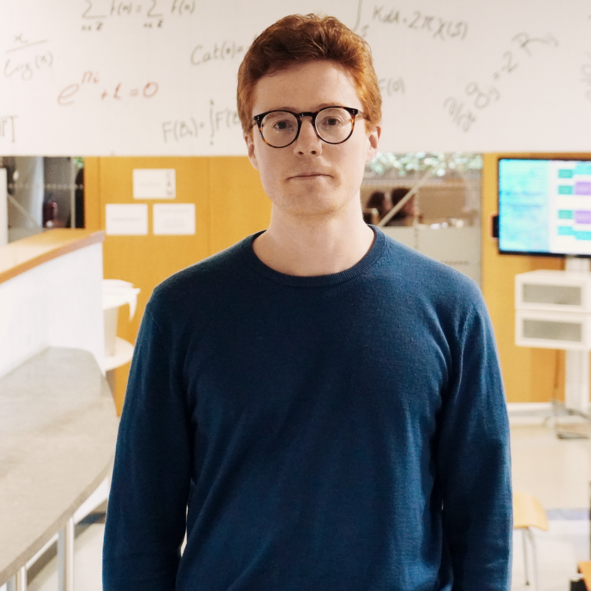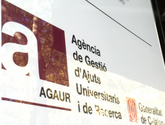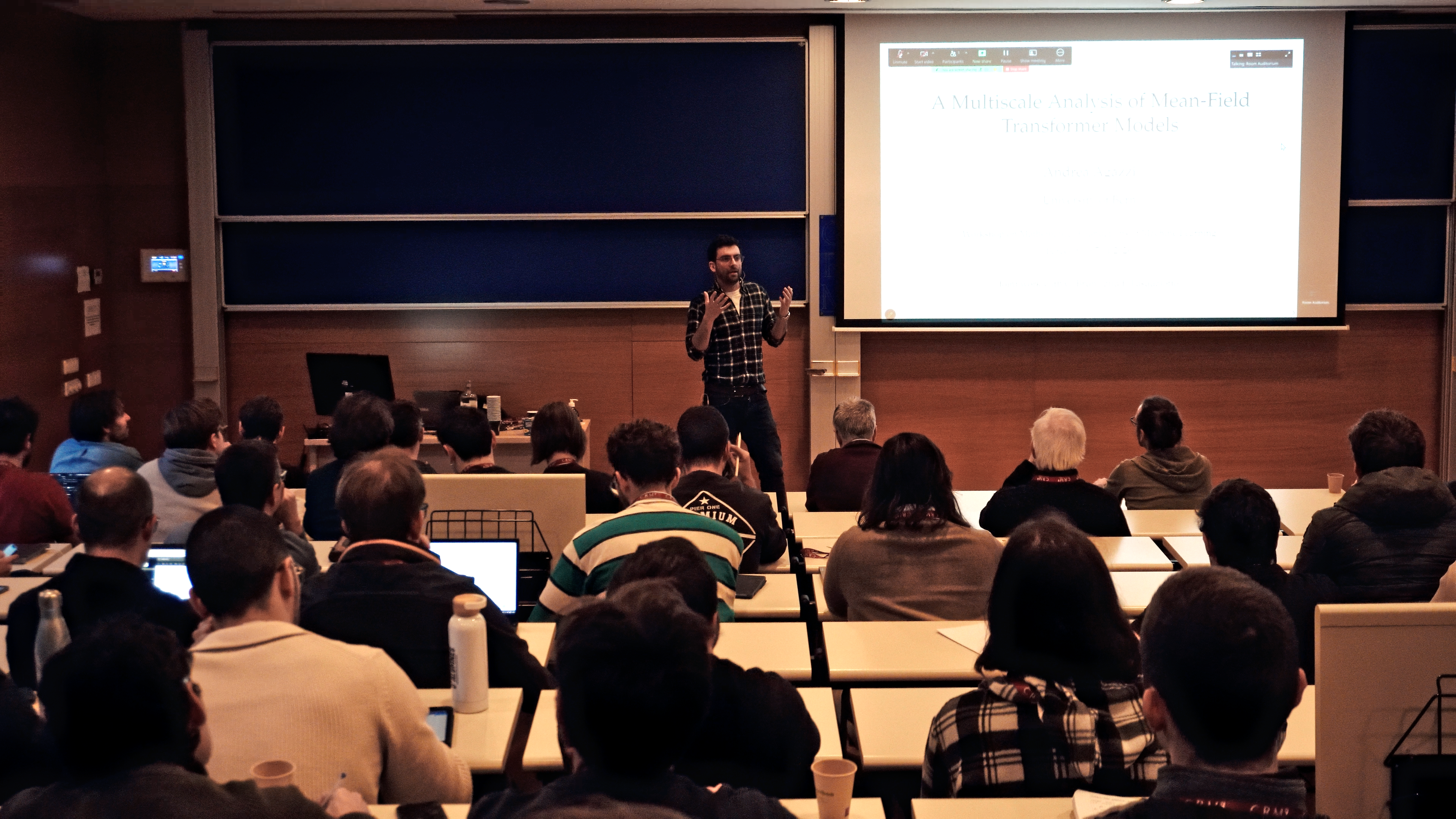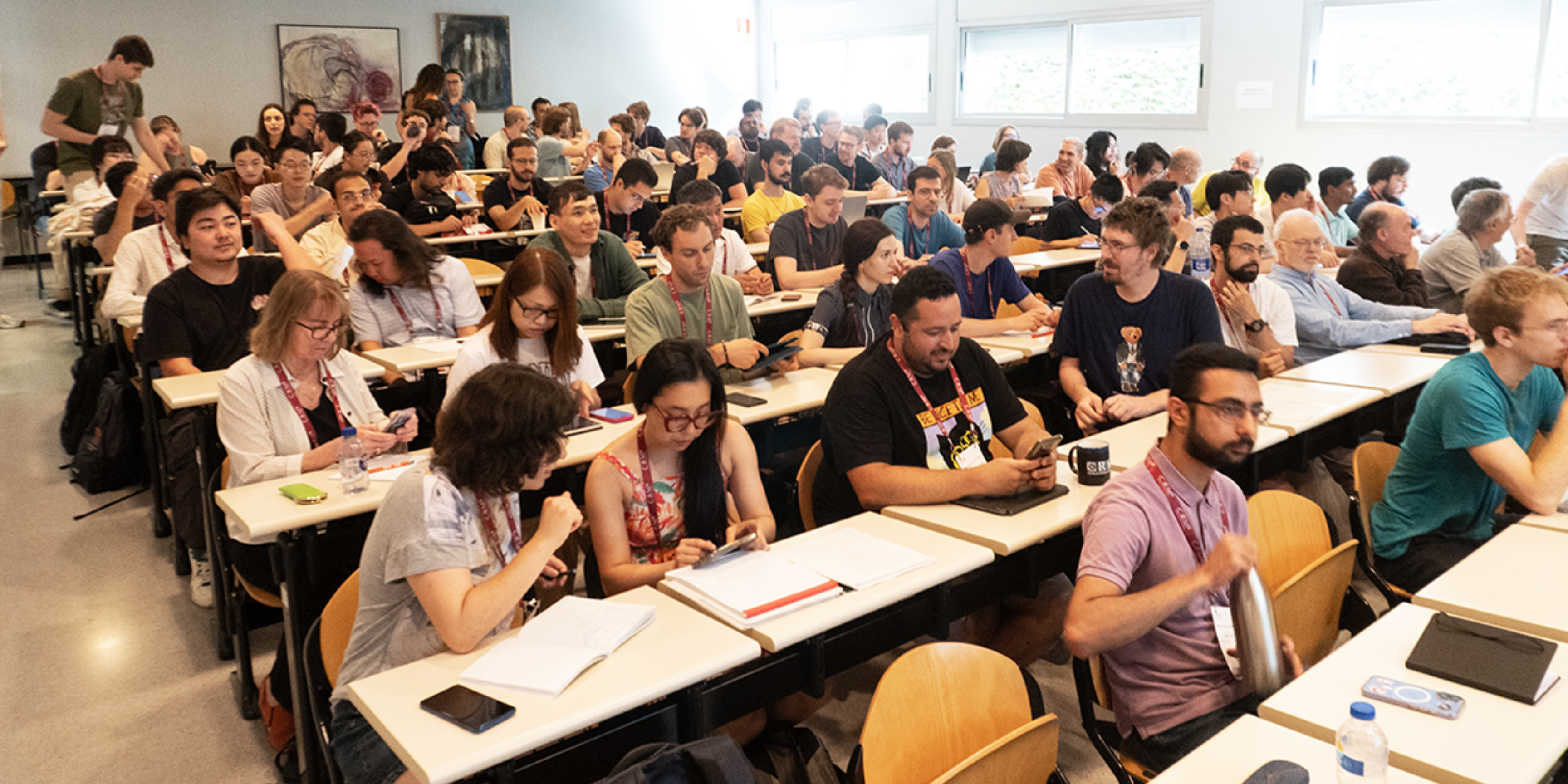
For one intense week, the CRM auditorium became a meeting point for some of the most active researchers in modern Fourier analysis. From June 2 to June 6, 2025, the Conference on Modern Trends in Fourier Analysis brought together senior experts, young mathematicians, and PhD students from across the globe to explore the latest developments in the field.
The conference, part of a two-month Intensive Research Programme, gathered more than 100 participants from Europe, North America, and Asia. The scientific and organising committee was led by Dmitriy Bilyk (University of Minnesota), Emanuel Carneiro (ICTP), Diogo Oliveira e Silva (Instituto Superior Técnico), Betsy Stovall (University of Wisconsin–Madison) and Sergey Tikhonov (ICREA, CRM).

The invited talks spanned a wide spectrum of current directions. Hong Wang (Courant Institute) discussed restriction estimates using decoupling theorems and incidence geometry, offering new partial progress toward Stein’s conjecture via Kakeya-type estimates in dimension three. Nir Lev (Bar-Ilan University) explored Schauder frames of translates in ![]() , revisiting fundamental questions about bases generated by translations of a single function.
, revisiting fundamental questions about bases generated by translations of a single function.
Jill Pipher (Brown University) presented a joint work on regularity problems for time-varying parabolic equations, addressing boundary behaviour on Lipschitz domains using advanced tools such as Hardy spaces for parabolic operators. In a related vein, Eugenia Malinnikova (ETH Zürich) connected uncertainty principles with Schrödinger evolutions, including recent results on spectral inequalities and Logvinenko–Sereda-type theorems.
Several talks touched on fractal geometry and geometric measure theory. Krystal Taylor (Ohio State University) surveyed progress on the Buffon circle problem, investigating projections of fractal sets and open questions around Favard length decay. Yumeng Ou (University of Pennsylvania) addressed pinned distance and tree sets, proposing refined conditions related to Falconer-type conjectures. Svitlana Mayboroda (ETH Zürich) discussed free boundary problems for partially reflected Brownian motion, presenting results that challenge prior expectations on the dimension of Robin harmonic measures.

Other invited speakers contributed advances on classical harmonic analysis problems. Alex Iosevich (University of Rochester) linked restriction phenomena with signal recovery in finite settings through Bourgain and Talagrand-type estimates. Aleksei Kulikov (University of Copenhagen) described the spectral behaviour of one-dimensional time-frequency localisation operators, revealing sharp eigenvalue distributions with phase transitions.
Mateus Costa de Sousa (BCAM) surveyed recent progress in Fourier uniqueness theory and phase retrieval problems. Giuseppe Negro (IST Lisboa) introduced a new family of Fourier restriction inequalities where constant functions extremize the problem, strengthening long-standing conjectures about optimal constants. Kristian Seip (NTNU) characterised extremal functions of minimal ![]() norm among exponential type functions. Shahaf Nitzan (Georgia Tech) revisited Riesz basis bounds for exponential systems, improving estimates in classical theorems of Avdonin and Levin. Finally, Jose Ramon Madrid Padilla (Virginia Tech) discussed isoperimetric inequalities on the hypercube, highlighting recent interactions between analysis, combinatorics, and geometry.
norm among exponential type functions. Shahaf Nitzan (Georgia Tech) revisited Riesz basis bounds for exponential systems, improving estimates in classical theorems of Avdonin and Levin. Finally, Jose Ramon Madrid Padilla (Virginia Tech) discussed isoperimetric inequalities on the hypercube, highlighting recent interactions between analysis, combinatorics, and geometry.
Beyond the invited lectures, the afternoon sessions featured an extensive program of contributed talks, with presentations by more than 40 early-career researchers. The multiple informal discussions allowed participants to exchange ideas and build new collaborations in a vibrant research atmosphere.
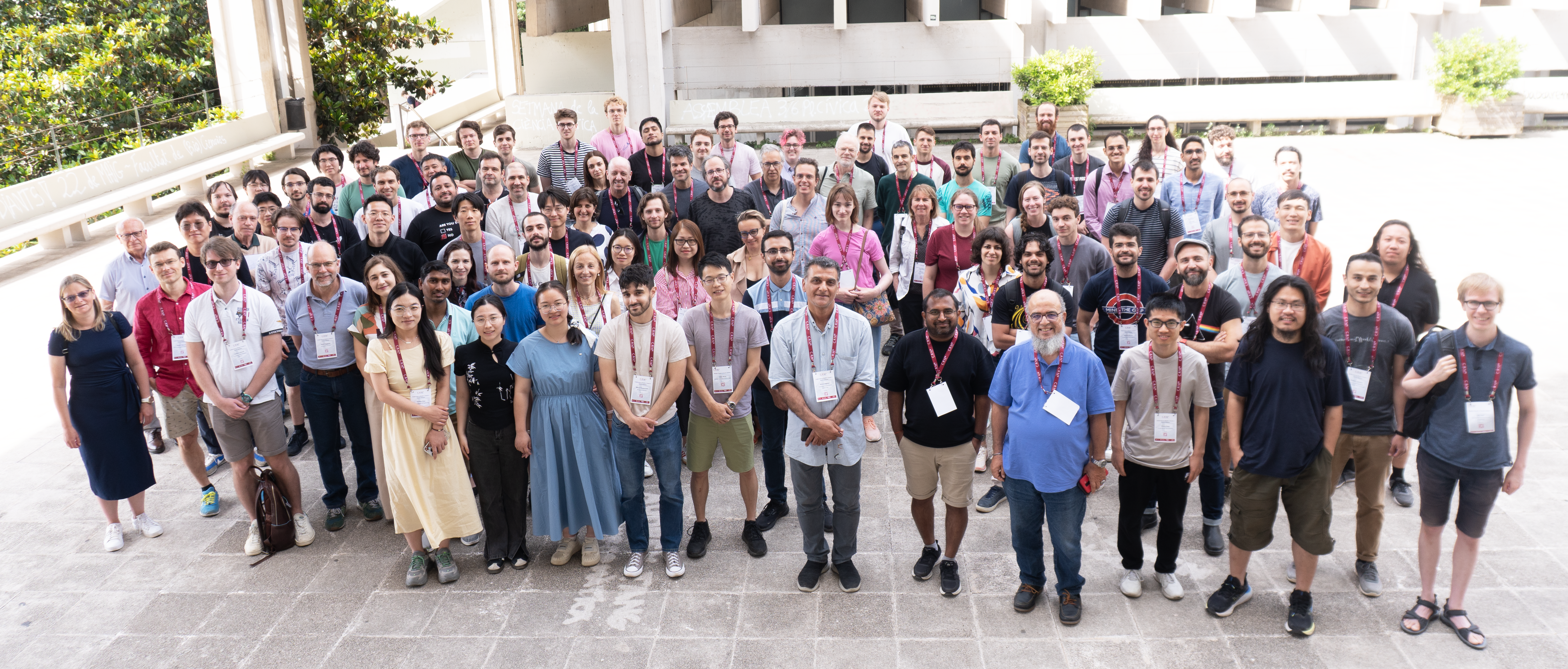
Many participants will continue their discussions next week at the complementary conference in El Escorial (Madrid), keeping alive the momentum generated during the CRM gathering. The Intensive Research Programme will continue throughout June, with ongoing seminars and several visiting researchers staying at CRM to deepen collaborations and advance their projects.
|
|
CRM CommPau Varela
|
When Symmetry Breaks the Rules: From Askey–Wilson Polynomials to Functions
Researchers Tom Koornwinder (U. Amsterdam) and Marta Mazzocco (ICREA-UPC-CRM) published a paper in Indagationes Mathematicae exploring DAHA symmetries. Their work shows that these symmetries shift Askey–Wilson polynomials into a continuous functional setting,and...
Homotopy Theory Conference Brings Together Diverse Research Perspectives
The Centre de Recerca Matemàtica hosted 75 mathematicians from over 20 countries for the Homotopy Structures in Barcelona conference, held February 9-13, 2026. Fourteen invited speakers presented research spanning rational equivariant cohomology theories, isovariant...
Three ICM speakers headline the first CRM Faculty Colloquium
On 19 February 2026, the Centre de Recerca Matemàtica inaugurated its first CRM Faculty Colloquium, a new quarterly event designed to bring together the mathematical community around the research carried out by scientists affiliated with the Centre. The CRM auditorium...
Trivial matemàtiques 11F-2026
Rescuing Data from the Pandemic: A Method to Correct Healthcare Shocks
When COVID-19 lockdowns disrupted healthcare in 2020, insurance companies discarded their data; claims had dropped 15%, and patterns made no sense. A new paper in Insurance: Mathematics and Economics shows how to rescue that information by...
L’exposició “Figures Visibles” s’inaugura a la FME-UPC
L'exposició "Figures Visibles", produïda pel CRM, s'ha inaugurat avui al vestíbul de la Facultat de Matemàtiques i Estadística (FME) de la UPC coincidint amb el Dia Internacional de la Nena i la Dona en la Ciència. La mostra recull la trajectòria...
Xavier Tolsa rep el Premi Ciutat de Barcelona per un resultat clau en matemàtica fonamental
L’investigador Xavier Tolsa (ICREA–UAB–CRM) ha estat guardonat amb el Premi Ciutat de Barcelona 2025 en la categoria de Ciències Fonamentals i Matemàtiques, un reconeixement que atorga l’Ajuntament de Barcelona i que enguany arriba a la seva 76a edició. L’acte de...
Axel Masó Returns to CRM as a Postdoctoral Researcher
Axel Masó returns to CRM as a postdoctoral researcher after a two-year stint at the Knowledge Transfer Unit. He joins the Mathematical Biology research group and KTU to work on the Neuromunt project, an interdisciplinary initiative that studies...
The 4th Barcelona Weekend on Operator Algebras: Open Problems, New Results, and Community
The 4th Barcelona Weekend on Operator Algebras, held at the CRM on January 30–31, 2026, brought together experts to discuss recent advances and open problems in the field.The event strengthened the exchange of ideas within the community and reinforced the CRM’s role...
From Phase Separation to Chromosome Architecture: Ander Movilla Joins CRM as Beatriu de Pinós Fellow
Ander Movilla has joined CRM as a Beatriu de Pinós postdoctoral fellow. Working with Tomás Alarcón, Movilla will develop mathematical models that capture not just the static architecture of DNA but its dynamic behaviour; how chromosome contacts shift as chemical marks...
Criteris de priorització de les sol·licituds dels ajuts Joan Oró per a la contractació de personal investigador predoctoral en formació (FI) 2026
A continuació podeu consultar la publicació dels criteris de priorització de les sol·licituds dels ajuts Joan Oró per a la contractació de personal investigador predoctoral en formació (FI 2026), dirigits a les universitats públiques i privades del...
Mathematics and Machine Learning: Barcelona Workshop Brings Disciplines Together
Over 100 researchers gathered at the Centre de Recerca Matemàtica to explore the mathematical foundations needed to understand modern artificial intelligence. The three-day workshop brought together mathematicians working on PDEs, probability, dynamical systems, and...

